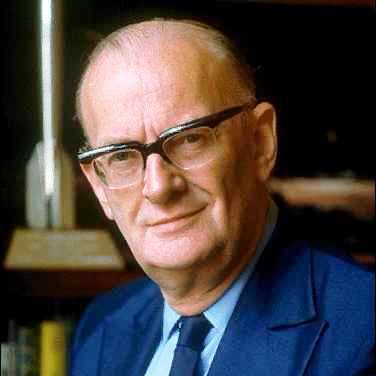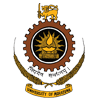 Born in Minehead, Somerset, England, in 1917, Arthur Charles Clarke was educated at Huish's Grammar School, Taunton, and King's College, London. He worked in the British Exchequer and Audit Department and served as a Flight Lieutenant in the Royal Air Force before turning a full time author in 1950.
Born in Minehead, Somerset, England, in 1917, Arthur Charles Clarke was educated at Huish's Grammar School, Taunton, and King's College, London. He worked in the British Exchequer and Audit Department and served as a Flight Lieutenant in the Royal Air Force before turning a full time author in 1950.
His interest in diving and underwater exploration led him to Ceylon (now Sri Lanka), where he first arrived in 1954. After exploring the island for several months during 1956, he decided to settle down there. He later adopted a Sri Lankan family headed by Hector and Valerie Ekanayake, whose Colombo house he shared, and with whom he pioneered diving and underwater tourism in Sri Lanka through their company, Underwater Safaris.
He also played an active role as a public intellectual and as a patron of art, science and higher education. He founded the Ceylon Astronomical Association in 1959.
In 1979, the government appointed him as Chancellor of the University of Moratuwa, the country's leading technological university. He held this position for 23 years until 2002 when he resigned due to health reasons. In 1984, the government named a newly established Institute for Modern Technologies in his honour, but Clarke was never associated with its research, administration or management.
For over half a century, Clarke wrote and broadcast extensively promoting Sri Lanka as a tourist destination. The late Lakshman Kadirgamar, foreign minister of Sri Lanka, once called him a 'one man cheering squad for Sri Lanka'. From 1980 to 1994, Clarke hosted three international television series: Arthur C Clarke's Mysterious World, Arthur C Clarke's World of Strange Powers and Arthur C Clarke's Mysterious Universe. His segments to camera were all filmed in Sri Lanka, generating invaluable promotion for Sri Lanka on television screens around the world.
Although he lived in Sri Lanka for 52 years, he always remained a British citizen. In 1975, he was granted the country's first 'Resident Guest' status, an immigration category that allowed accomplished foreigners to live in the country. Clarke never sought nor received Sri Lankan citizenship.
Sri Lanka bestowed on him three high level national honours, viz:
n Vidya Jyothi ('Luminary of Science') award from the President of Sri Lanka, 1986
nSahithyaratna ('Gem of Literature') lifetime achievement award from National Arts Council, Sri Lanka, 2005.
n Lankabhimanya ('Pride of Lanka'), highest civilian honour from the President of Sri Lanka, 2005.
Clarke also received many more awards and honours from around the world, including several honorary doctorates. He shared with Stanley Kubrick an Oscar nomination in 1969 for his screenplay of 2001: A Space Odyssey, and was nominated for the Nobel Peace Prize in 1994 for his role in globalising communications by inventing the communications satellite (1945). He was knighted by Queen Elizabeth II in 1998 for 'services to literature'. In 1996, the International Astronomical Union named asteroid No 4923 in his honour, while scientists at the University of Monash, Australia, named a newly discovered dinosaur species as Serendipaceratops arthurcclarkei in 2003.
In later years, Clarke was wheel-chaired owing to Post Polio Syndrome, but remained active as a writer to the very end. He died on 19 March 2008 aged 90, and was buried at the General Cemetery Colombo in a secular funeral. His last novel, titled The Last Theorem, was published posthumously in August 2008.
- From an article in "Sunday Times"
